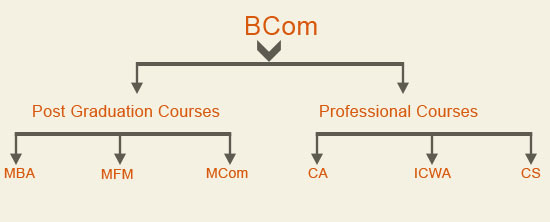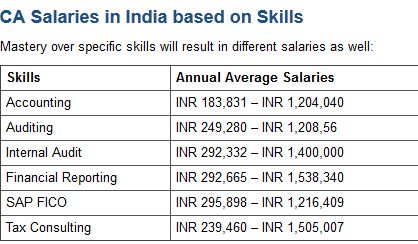General guidelines for preparation of IDT law for CA examination

Here we talk about the general guidelines and tips for preparation of IDT (Indirect Tax) law with regards to CA examinations.

Every student is different and so is the course he/she is pursuing. The way all fingers of the hand are not equal similarly the preparation for each and every exam for the same course cannot be the same.
Exploring and acquiring information from different sources regarding how to prepare and what to study is advisable however following any advice comes at your own risk. You should focus on adopting the best out of whatever you read online before the examinations with regards to the preparation of your respective examinations.
The key behind fetching good score in any and every exam is the same i.e. following the right reference books and study material, conceptual clarity, keeping a track of the recent happenings and so on. IDT is a crucial subject of the final level of CA since it is considered to be one of the most scoring subjects out of all.
Acting tactfully for preparation of IDT examination can help you score good marks in the said exam therefore it is highly recommended to concentrate on following the right advice and study material for the same. Mugging up everything is neither possible nor advisable since that can lead to a messy situation in your mind that can have an adverse impact on the paper you write.
General guidelines for Preparation of IDT (Indirect Tax Laws) for CA Examinations

- Refer to the right references and study material that you have been following since the beginning for the preparation of IDT
- Recent amendments and case studies are valuable so better keep a track of them from the Revision Test Paper (RTP) of the Institute or any other reliable source
- Make sure to practice on how to solve each type of question along with working notes; they are the most important part of your solution and carry more marks than the correct answer
- The past trends show that the first question (the compulsory one of 20 marks) consists of 4 practical questions so don’t take it lightly. The practice materials issued by the Institute have plenty of questions along with presentation so don’t forget to refer them as well
- In other 6 questions, the last question will be completely theory based (no case study, no practical) and will also have choice. You can prepare for that part by doing all the definitions and procedural part of the law
- Questions relating to digitalization of various processes under indirect tax are very common so prepare for that also
- CA Exam Papers are always the most unpredictable ones so there could be high possibility that the chapters from which no question came in past, can be picked up this time so better not to leave any topic i.e. at least go through each topic once
- Syllabus is very vast thus referring practice manual and last three year’s question papers will give you an idea of the type of questions that are being asked and how to answer them
“Try attempting the full paper of 100 marks to score some extra marks”
The above list is not at all exhaustive and a lot many things can be added or removed from the same depending upon the way and medium you follow for preparation of IDT exam.
Few important focus areas for preparation of IDT
- One or more practical questions are expected from each – custom law, service tax (25 marks expected from past few attempts), excise law (15-18 marks) and cenvat credit (should be gone through at least once)
- Foreign Trade Policy (FTP) has a weightage of 6-12 marks and there is less likely chances of having no question from that part so make sure to make it as a part of your revision in addition to just preparation
- A 4-marks question is expected from VAT so practice a few sums beforehand. It is an easy topic and won’t take much time for you to grasp and revise it
- Service tax and VAT covers almost 50 marks in the examiniation so prepare accordingly
- Case studies carry around 16 marks everytime so be prepared. Case studies for this attempt are less likely to be asked in the exam than the case studies of previous 2 attempts. More weightage should be given to those also. Try to write some case studies answer by yourself in proper format. If you can quote the case law name then that would be cherry on the icing but never ever write wrong name, it is better to write no name instead. For instance, Facts of the Case, Legal Position and Conclusion


 Bankruptcy Lawyer in Pittsburgh
Bankruptcy Lawyer in Pittsburgh  3 Ways to Get Help With Your Legal Case
3 Ways to Get Help With Your Legal Case  Guide to preparing for CA Final Exams – Part 2
Guide to preparing for CA Final Exams – Part 2  Guide to preparing for CA Final Exams – Part 1
Guide to preparing for CA Final Exams – Part 1  MBA and ICWA- Both has its own significance. Which one is good for career- MBA or ICWA?
MBA and ICWA- Both has its own significance. Which one is good for career- MBA or ICWA?  How Much You Can Earn As A Cost and Works Accountant?
How Much You Can Earn As A Cost and Works Accountant?  ITAT Amritsar: No Section 269SS Violation for One-Time Cash Payment Before Sub-Registrar
ITAT Amritsar: No Section 269SS Violation for One-Time Cash Payment Before Sub-Registrar  Tax Officials Unleash Digital Dragnet: How New Raid Powers Redefine Privacy, Property Rights in India and likely to Fuel Corruption
Tax Officials Unleash Digital Dragnet: How New Raid Powers Redefine Privacy, Property Rights in India and likely to Fuel Corruption  Income Tax Department Rewards for Reporting Tax Evasion: A Comprehensive Guide
Income Tax Department Rewards for Reporting Tax Evasion: A Comprehensive Guide  Forfeiture of Gratuity by Employer- What are the Remedies for an employee- Can employer be challenged?
Forfeiture of Gratuity by Employer- What are the Remedies for an employee- Can employer be challenged?